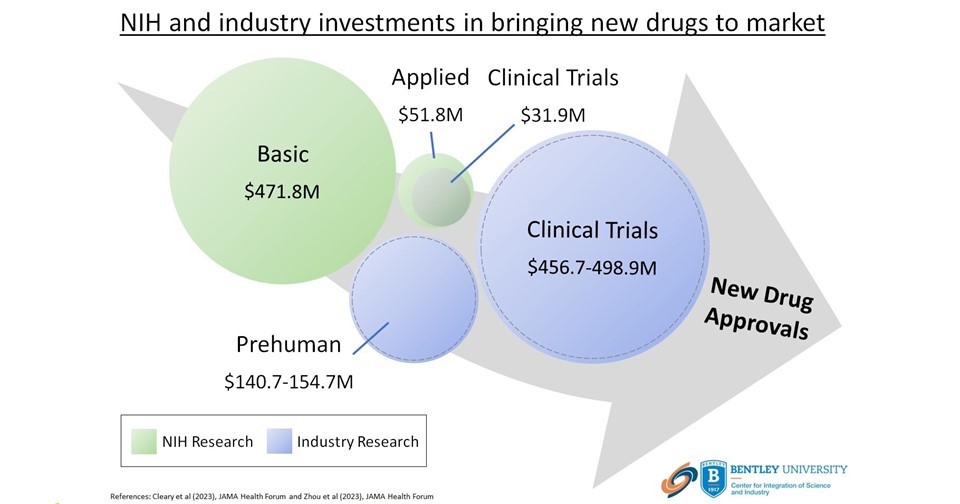How NIH Funding Drives Life-Changing Advances in PF Treatment

I think we can all agree that research on pulmonary fibrosis (PF) is very important to our community. We talk a lot about PF research here at the PFF, including on this blog, in our webinars, and at our PFF Summit. Basically, everything we know about PF started out as a research idea. What you may not know is the importance of our federal agencies – the National Institutes of Health (NIH) in particular – to advancing the care of people living with pulmonary fibrosis through scientific research.
NIH is the primary – but not the only – federal agency that directly supports medical and health related research in the U.S. Each year, the NIH funds about $120 million of PF research! The NIH has some of their own scientists and researchers, and about 10% of their annual budget is spent on projects inside various NIH departments. More than 80% of the annual budget of the NIH funds medical and health related research outside the NIH – mostly in academic institutions (universities), research institutes, and small businesses. These academic institutions include many of our PFF Care Center Network (CCN) programs – and if you are seen in one of the CCN sites, I want you to ask your doctor at your next appointment if he or she is involved with any NIH-funded research.
The congressionally appropriated NIH budgets have not increased with inflation, and the grant awards themselves have not increased in dollar amount since 1993, even though the cost of doing research has increased significantly over that time. NIH grants are also highly competitive with the vast majority of proposals going unfunded every year. When an academic researcher can’t get funding for their work, the research simply can’t get done. The NIH awards two main types of grants – the R01 for established investigators and K awards for early-career investigators. In 2023, the NIH reviewed more than 48,000 R01applications and nearly K 4,000 applications but funded fewer than 10,000 R01 grants and about 1,200 K awards.

Turning a scientific observation into a therapy takes years, with thousands of possible therapeutics and targets tested before one succeeds in clinical trials and gains approval. In pulmonary fibrosis, most trials in humans are industry-funded, while the NIH, focuses on the early-stage research, funding the many “shots on goal” needed before a therapy is ready for human trials and industry involvement
Now, you might think, it’s okay, the PFF can fund research. Yes, we do fund research. Our PFF Scholars program has been very successful over the years in giving the earliest career researchers the start they need to gather the data that enables them to then apply successfully for NIH grants, which can fund larger projects over longer periods of time. But the amount of funding and number of grants that a nonprofit foundation like the PFF can provide is nowhere near what NIH funds annually toward PF research (which, as a reminder, is about $120 MILLION per year).

NIH-funded research has shaped pulmonary fibrosis treatment. The 2011 PANTHER study, for example, found that the widely used combination of prednisone, azathioprine, and N acetylcysteine for IPF worsened outcomes, overturning clinical practice overnight based on those results. Beyond research, the NIH convenes stakeholders across the PF community, including researchers, clinicians, industry partners, and patients to advance progress through collaborative meetings and initiatives.
The NIH goes beyond research, providing invaluable resources and supporting best practices that guide clinical care. I rely on these daily as I’m caring for my patients. They also maintain clinicaltrials.gov, a key tool for finding trials, and pubmed.gov, a search engine for peer-reviewed medical and health related scientific publications.
The PFF is holding a webinar, Research at risk: Understanding the critical role of the NIH in finding new treatments for PF, on April 23 at 12 p.m. CT to further discuss federal research funding. Registration is now open.
You can help ensure PF research funding by becoming a PFF Advocate. Your participation is key to amplifying the voice of the pulmonary fibrosis community in policy decisions!
